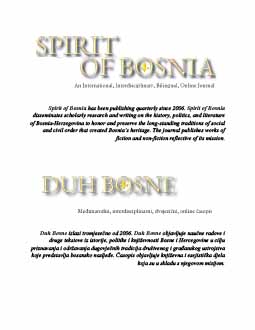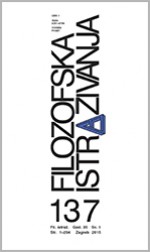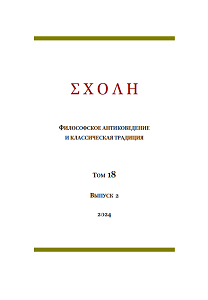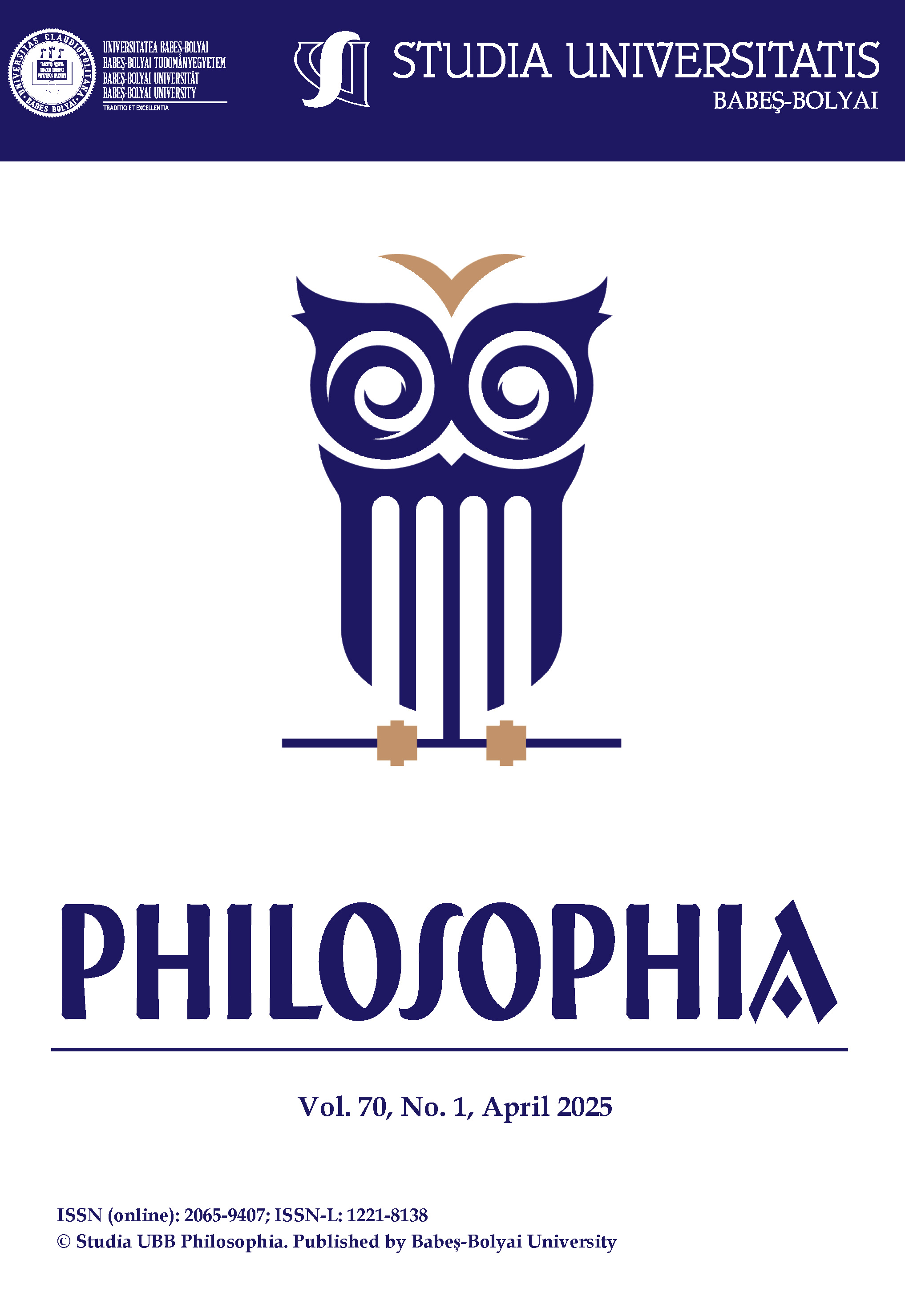
We kindly inform you that, as long as the subject affiliation of our 300.000+ articles is in progress, you might get unsufficient or no results on your third level or second level search. In this case, please broaden your search criteria.


Durch die Frage nach der Technik möchte Heidegger unser Dasein dem Wesen der Technik öffnen. Dabei unterscheidet er zwischen Technik und dem Wesen der Technik. Nach altem Grundsatz gilt als das Wesen von etwas das, was etwas ist. Deshalb fragen wir nach der Technik, wenn wir fragen, was sie sei. Die Bestimmung der Technik als eines Mittels und eines Tuns des Menschen stellt eine instrumentale und anthropologische Auffassung derselben dar. Diese Bestimmung gilt auch fur die moderne Technik, obwohl sie etwas durchaus Anderes und darum Neues ist. Die instrumentale Bestimmung der Technik hält Heidegger für richtig, aber sie zeigt noch nicht ihr Wesen. Die Technik ist eine Weise des Entbergens. Die Art des Entbergens, die die moderne Technik charakterisiert, ist das Stellen im Sinne der Herausforderung. Das in der Weise der technischen Herausforderung Versammelnde nennt Heidegger Ge-stell. Das Wesen der modernen Technik beruht im Ge-stell. Aber es ist nicht im Sinne der Gattung und der essentia gemeint. Als deren Wesen ist das Ge-stell die äußerste Gefahr, weil es dadurch dem Menschen versagt sein konnte, in ein urspriinglicheres Entbergen einzukehren, um eine anfanglichere Wahrheit zu erfahren. Dabei muss man berücksichtigen, dass das Wort Ge-stell bier in einem vollig ungewohnten Sinne gebraucht wird. Nach der gewonlichen Bedeutung meint es z.B. ein Büchergestell. Das Wort Ge-stell meint kein Geriit oder irgendeine Art von Apparatur. Heidegger ist nicht gegen Technik. Seinen eigenen Worten zufolge hat er versucht, das Wesen der Technik zu verstehen. ln ihrem Wesen sieht er das Stehen des Menschen in einer Macht, der gegenuber er nicht mehr frei ist; ferner kündige sich bier ein Bezug des Sein zum Menschen an, der sich im Wesen der Technik verbirgt und eines Tages vielleicht in die Unverborgenheit kommen wird. Im Wesen der Technik sieht er den ersten Umriss eines tieferen Geschehens, das er Ereignis nennt.
More...
Not only does it seem necessary to present the meaning which the word techne had in the classical Greek culture, but also to distinguish the techne - technics dichotomy. As a result of historical development, this distinction has led to dissolution of what the antique word techne meant as well as to independence of technics as something different from techne by its meaning and its definition, or, more precisely, it has proved to be a reduction, a confinement of its content. Having designated his vocation as 'political techne', because it teaches political arete, Protagora speaks of prudent deciding studies (eubolia) in the sphere of state affairs to make a young man capable of working and speaking for the state. As opposed to some other sophists who tend to more practical education, Protagora considers only politica[ education as genuinely a 'general' one.
More...
Does Plato in his late dialogue abandon from the ideal of the best state or in The Laws only adjust this ideal to the existing circumstances (whereas the concept of the polis from The Sta¬te still remains paradigm)? According to the certain interpreters Plato in The Laws does not leave the ideal of the best regulation from The State dialogue, but in his late dialogue presents the second best state with regard to the paideia which can be realized in the existing circumstances. On the contrary to this, having in mind changes which has happened in Plato’s philosophy upon The State emerged, it is possible to defend the other standpoint as well, according to which the Plato’s views of the state regulation are essentially modified in The Laws dialogue. Thematizating the difference in Plato’s concept of the state in The State and The Laws dialogues in this work has been made an attempt to show how the “revising” of the attitudes on the polytea regulation happened due to the change of Plato’s ontology. The explaining of this statement include: (1) that the difference between The State and The Laws dialogues is more thorough and deeper than it appears considering Plato’s observation that in the latter dialogue it is about „the second best state“; (2) that Plato’s scholarship on the best (ideal) state is essentially defined by its ontology, and it is confirmed by Plato’s dialogues made between The State and The Laws; (3) on this basis in the work has been founded the statement that the change of Plato’s political position is a consequence of Principal Theory re-establishing which replaces the early Plato’s ontological postulates. Owing to the serious researches of Plato’s “unwritten doctrines”, i.e. the rebuild of Principal Theory, it is obvious today that in the time period between two Plato’s tractates, on which this work is about, happened a change in the ontological premises of The State and The Laws author. Leaving of the so called “early ideas theory postulate”, indeed, understood gradual process: and a step in The State has been made toward the one of the “principals” by setting the idea of the good in the rank of what is “from the other side of being”. However, the immanent critics of ideas theory is getting radical in the Par¬me¬ni¬des, Sop¬hist, Sta¬te¬sman and Ti¬ma¬e¬us dialogues, and the latter probably most expli¬ citly points out on different Plato’s ontological position. Introduction of manyness in the world of ideas, which is happening in Par¬me¬ni¬des already, “concatenation of being and non-being”, as the Sop¬hist dialogue speaks about, is changing the relationship to what is taken away of stand-alone ontological status at early and mature Plato. The above mentioned assumption, which we tried to prove, adopt the standpoint defended by many researchers of Greek philosophy (Fink, Heidegger, Krämer, Volkmann-Schluk) that in the overall antique mind experience the ontological plan is primary, i.e. that the practical philosophy is in the shadow of “the first philosophy”, and based on it, the difference between The State and The Laws can be understood as well.
More...
Based on an analysis of the myth of Kleobis and Biton this paper considers the Greek term arete and the multiplicity of its meaning. Analysis of the myth’s narrative in the first layer reveals the identity of archaic “ethical” values , while in the second reading it also points to their change in the direction of creating a conceptual definition of ‘good’. Finally, the paper compares the idea of archaic athletic hero – found in Homeric and Hesiodic literature, as well as in the myth of Kleobis and Biton – with its visual version in the sculptural form of kouros. As we can detect the change of values from aristocratic ‘virtue’ towards the general idea of ‘good’ in the example of the myth, likewise we can find change in the sculpture fabric from symbolic towards individualised identity of the human figure.
More...
The article deals with the question of Epicurus' attitude to the passions. It is established that the doctrine of passions plays an important role in the philosophy of Epicurus. It is shown that Epicurus sees the greatest danger to peace of mind in fears of the forces of nature, in love passion and greed. Therefore, these passions must be completely eliminated. Anger, according to Epicurus, should be restrained, because in some cases it can be natural. Epicurus approves of the pleasant sadness of remembering dead friends and compassion for loved ones. Epicurus also welcomes the joy and even rejoicing associated with spiritual goods. Thus, on the question of passions, Epicurus managed to develop a position that differs from both the Stoic doctrine of dispassion (apathy) and the peripatetic doctrine of moderation in passions (metriopathy).
More...
The article is devoted to the problem of the correlation of apophatic issues in the dialogues "Sophist" and "Parmenides". The article substantiates the position that the doctrine of non-being, presented in the Sophist, is one of the foundations of the first two hypotheses of Parmenides. An important point in the Sophist is the distinction between the other (ἕτερον) and the nature of the other (θατέρου φύσιν), which serves as a prerequisite for the dialectic of the one and many in the second hypothesis. It is suggested that the other six hypotheses are determined by the understanding of the other in the Sophist.
More...
The article aims to assess the extent to which our understanding of the history of ancient geography (defined as a list of authors who contributed to it) is shaped by extant sources, and how different this history could have appeared, if we account for their limitations and selectivity? Consequently, an analysis of sources and references to authors of lost works yields divergent outcomes. Source analysis demonstrates that our knowledge of ancient geography is largely conditioned by random factors and thus must have significantly differed from its ancient perception. Conversely, citation analysis reveals that we know the majority of geographers who were famous in antiquity. This divergence can be explained, in part, by the tendency to cite the famous authors instead of those whose information was actually used. Comparing historiographic lists of geographers from different sources reveals more discrepancies than similarities between them, indicating that its version from our primary sources (Eratosthenes, Strabo, Stephanus of Byzantium) lacks widespread support. However, a consistent pattern emerges: the primary sources tend to draw upon the most famous authors and vice versa. A kind of “stress test” allows us to assess how sensitive our knowledge of the prominent geographers is to the loss of individual sources and, conversely, how many more geographers could have been included among them if better represented by sources. The overall conclusion is that alterations to our source pool would significantly impact our evaluations of most geographers but have minimal effect on their total number. Lastly, it is argued that the period in the history of geography from Strabo to Ptolemy lies in our “blind spot,” being the least illuminated by sources yet concealing some crucial missing links.
More...
The article examines a poem written by a contemporary Petersburg poet, Alexander Semyonovich Kushner “And what a foreign lady said…” The poet mentions the Athenian thinker Socrates and a foreign lady, never giving her name. It is clear that he speaks about the priestess Diotima of Mantinea (an ancient city in Arcadia), with whom Socrates, a character in Plato’s dialogue Symposium (Plato, Symp. 201d–212b) conversed. Why should the story of love told by the Mantinean priestess have failed to inspire the Russian poet when he read it for the second time (“this time”)? Why did Kushner think that Symposium is “less about ardour, / Than a long invocation of wits”? It is the most erotic not only in Plato’s works but also in the whole classical philosophy. Diotima praises Eros’s might and valour, she calls him a great genius, a mediator between the immortal and the mortal. Socrates’ educator in “the philosophy of love” says that love is an ascent from the contemplation of the physical beauty to the contemplation of the beauty proper (Plato, Symp. 210а–212а). What the priestess in the ancient Greek philosopher’s dialogue tells about love, virtue, aspiration to engender the beautiful and the immortal, Kushner “applies” to the experience of earthborn sentiment. In his “antiquity-oriented” poem he does not agree with the “formula of love” proposed by Diotima (Socrates = Plato). The poet seems to regard “the Diotima formula” as abstract, divorced from reality, which is more multifaceted and complicated than any theory. In this “non-platonic” work, Kushner estranges himself from Plato’s Symposium and says that love cannot comply with any “formula”.
More...
In the works of Wang Chong and Cleomedes there are coinciding numerical parameters related to the determination of the size of the Earth. In Wang Chong, the numerical data appear partly arbitrary, partly insufficiently substantiated. In the corresponding passage of Cleomedes, the argument pretends to be scientific, but in fact turns out to be internally contradictory and almost illogical. Painstaking reconstruction of the reasonable core in Cleomedes’ account reveals that the numerical parameters given by him go back to a certain early system of Greek astronomy. This system assumed a flat Earth, the movement of the luminaries only above the Earth, the principle of the limited spread of sunlight; it employed the measurement of distances along the meridian based on the proportional change in the length of the shadow and the use of the archaic stadium of 100 single steps. It is about the system of Anaximenes and his followers. In Chinese material, this system is known as the gai tian, and I repeatedly argued its Greek origin. Wang Chong is also an adherent of the gai tian. All this makes it very likely – but still not proven – that the numerical parameters presented by Wang Chong came to him ultimately from Greek sources.
More...
Does the philosopher Plato, despite his elevation to a supreme position in the intelligible world of the Beautiful itself, or the Idea of Beauty, really exhibit any appreciation of the beauties of nature, or Natural Beauty? The omission of any mention of the beauties of Nature in Diotima’s ladder of ascent to the Beautiful Itself in the Symposium leads me to propose that Plato, in line with the sensibility of Greeks of the Classical period in general, does not possess what would later be termed an ‘Arcadian’ view of the beauties of the natural world; and even in the later Platonist tradition there is little evidence of such sensibility.
More...
The paper presents the philosophy of God in the philosophical writings of Apuleius of Madauros, one of the most outstanding philosophers of the Middle Platonism of the 2nd century after Chr. A special feature of the theology of the Middle Platonism and what clearly distinguished this philosophy from Stoicism, which was still dominant at that time, with its vision of divinity immanent in the world, was the return to the Platonic concept of the “incorporeal” and “transcendent” God – the Creator and Saviour of this world. This concept of God fit very closely into the mystical spirituality of Middle Platonism. The attribute of God as the Saviour (Sospitator) of the world is particularly important. This is especially visible in the writings of Apuleius. Apuleius uses the term “the Saviour” in the religious sense. This term expresses the religious aspect of God’s activity in relation to His creatures and supplements His metaphysical function as an efficient cause. Apuleius’ theology quite clearly shows its rootedness in the philosophy and mystical spirituality of Plato himself, and at the same time close to the mystical spirituality of the religious Mysteries popular then. It is a very important element of his philosophical spirituality. The awareness of the existence of God, the Creator, Father, and Saviour of the world, clearly influenced Apuleius’ ethics and his perception of man.
More...
The idea of literary immortality first appears in the Homeric epics: the heroes live on in glory. Further tradition develops this motif – we must imitate our heroes or ancestors, because only in this way will they be given due honor. But another (historical) understanding of literary immortality is also developing; it aims to save the past from oblivion, not to influence the present (written culture, as opposed to oral tradition, thinks in this way). Plato takes the position of “poetic” immortality in this matter, but he considered poetry in an ethical context and seeks to select poets who have the right to educate the youth. In the Hellenistic-Roman era, the semantic accents shift, and now the author himself claims literary immortality. The idea of the author’s immortality is mixed with the usual immortality in glory and with the religious immortality of the soul (the writer becomes a minister of the muses). Pliny the Younger’s position is limited neither to two “pure” types of literary immortality (“poetical” or “historical”), nor two “mixed” types (immortality in glory and immortality of a muses’ minister). Pliny outlined a new understanding of literary immortality – immortality as an exemplary author, as Cicero was for him.
More...
The article examines M. Heidegger's interpretation of Plato's "Allegory of the Cave" from the Republic. At the beginning of the article, Heidegger's lectures related to Plato are introduced; then the author briefly indicates how Heidegger participated in the "struggle" for the interpretation of Plato and Aristotle between Neo-Kantians and phenomenologists. It is emphasized that Heidegger based his own Plato's interpretation on his reading of Aristotle; his interpretation of Metaph. 9.10, "the cornerstone of fundamental ontology", according to Heidegger, is dealt with. Next, the understanding of "Truth" in Heidegger’s lectures on Plato's dialogue Sophist is briefly analyzed, and, in addition, an alteration of this understanding in his "turning" work On the essence of Truth. The second part of the article is devoted to the analysis of Heidegger’s work Plato's Doctrine of Truth in four main aspects: "the idea as the visible"; "the idea of the Good as the visible"; "correctness of view"; "Plato as a sophist and Aristotle". The conclusion is made about a certain rearrangement of Plato and Aristotle’s positions in Heidegger's interpretation, and an imposition on Plato of rationalism and subjectivism not peculiar to him.
More...
The article is devoted to the consideration of the so-called Platonism of multiplicity in connection with the tendency in philosophy of recent decades to revaluate “non-modern” modes of existence, thinking and knowledge. The most important aspect of this revaluation is the rejection of Cartesian dualism (as a philosophical “symbol” of the modern era) in favor of anti-substantialist thought based on the conceptualization of the multiplicity of relations. Following this theoretical line, the authors identify key features of modern thinking and attempt to find an alternative to the modern (Cartesian/Kantian) concept of the subject in Platonic philosophy (in its Renaissance interpretation). For this purpose, the authors first of all clarify their approach to Platonism, construed not as a heritage of the metaphysical past, but as the very potentiality of philosophy itself. In support of this interpretation, various versions of the reactualization of Plato’s ideas in contemporary philosophy are given, associated with the names of J. Patočka, A. Badiou, and I. H. Grant. Following a brief consideration of their “Platonisms,” and clarifying the key concept for this article, “Platonism of multiplicity,” this concept is applied to the Renaissance Platonism of Marsilio Ficino in order to examine in detail the natural philosophical concept of the soul that he developed. Drawing on extensive research material, the authors describe the constitution of the soul as Ficino understood it, and demonstrate in what sense this concept, repressed by modernity, is an alternative to Cartesian and/or Kantian subjectivity, and explain why the task of current philosophical thought is to provide the conditions for its return.
More...
The publication presents a commented Russian translation of Porphyry of Tyre’s (ca. 234 – ca. 305) treatise On the Styx (Περὶ Στυγός), which belongs to the group of his works dealing with Homeric poems. The best known of these is his fully preserved treatise On the Cave of the Nymphs (Περὶ τοῦ ἐν Ὀδυσσείᾳ τῶν νυμφῶν ἄντρου), while the most extensive are his partially preserved commentaries on the Ilias and Odyssey known under the common title of the Homeric Questions (Ὁμηρικὰ ζητήματα). Finally, his treatise On the Styx is extant only in fragments, which have been preserved by a single author only, Joannes Stobaeus (fl. vth century). In the Homeric Questions, a purely philological attitude is predominant, based on Aristarchus of Samothrace’s principle of “self-interpreting” text, “explaining Homerus from Homerus (Ὅμηρον ἐξ Ὁμήρου)”, while in both treatises the allegorical interpretation of the Homeric text moves to the foreground, which entails supplying it with a philosophical, specifically Platonic, content, having to do, above all, with the understanding of human soul and its vicissitudes after death. Attention to the letter of the Homeric text, as well as to other literary phenomena is not diminished by that, though undergoes a transformation. This attitude is characteristic of other Platonists as well, from Numenius of Apamea before Porphyry to Proclus Diadochus after him. The Russian translation is based on Cristiano Castelletti’s edition of On the Styx (2006), taking into account both the standard edition of Porphyry’s fragments by Andrew Smith (1993) and the still relevant critical edition of the four books of Stobaeus’ Anthology (whence the fragments of On the Styx have been extracted) by Kurt Wachsmuth and Otto Hense (1884–1912).
More...
In this article we are publishing for the first time four epigrams in Ancient Greek and Latin by Russian classicists Alexei Losev (1893–1988) and Aza Takho-Godi (born 1922), dedicated to Sergei Radzig (1882–1968) and Tatiana Vasilieva (1942–2002), who herself was a notable Neo-Latin poet. The epigrams are provided with a critical apparatus, a Russian translation and a commentary. The analysis of vocabulary and linguistic features of the epigrams revealed the use of epic formulae as well as Homeric and Horatian quotations in a light pseudo-Hellenistic spirit. Traits of Losev’s individual literary style manifest via incorporation of Neoplatonic terminology into the Homeric language of the poems.
More...
Economic thought in ancient Greece did not exist as a private scientific discipline. It is with the poet Heizod that economic observations actually begin. However, the contribution to the development of economic thought at that time came from the great philosophy of Xenophon, Plato (and his student Aristotle). In the paper you have analyzed your contribution to economic thought. From a historical point of view, all facts indicate that Greek philosophies created and grounded the creation of economic thoughts. They studied economics through oral discussions about ethics and philosophy with their students. Based on their contribution to the development of economic thought, the emerging civilizations used knowledge and supplemented their experience and new ideas. Even today, theories from the time of ancient economies are used as the starting point for modern economics.
More...
Although it is not possible to conceive of the history of Western thought as a continuous and linear (let alone progressive) process of development, some paths seem to have been historically dominant, while other possible developments, however potentially fruitful, seem to have turned out to be “interrupted paths”. This paper is concerned with the interpretation offered by Foucault in the early 1980s, according to which Socrates on the one hand and Descartes on the other would have opened up two discordant paths to the key relationship between subjectivity and truth. In both cases, the starting point is the maxim gnóthi seautón. In Socrates, however, it is linked to (and subordinated to) the question of epiméleia heautoú, which in Descartes’ case would disappear completely. The modern-Cartesian approach would thus lead to a purely theoretical-gnoseological-epistemological conception of philosophy, which would lose sight of the strong practical scope of Socratic discourse. Contrary to this interpretation, an attempt is made here to show that, in fact, even at the heart of Cartesian thought one can trace an all but secondary attention to the ethical-practical dimension of philosophy and, albeit in a modified form, to the principle of the necessary “care of the self”.
More...
The Socratic imperative to examine one's own life is linked to the fundamental moral idea of personal autonomy. Therefore, it is quite difficult to reject it, but it is equally challenging to apply it for various reasons. If it is philosophically assumed, a distilled version of the Socratic imperative has significant implications for one’s meta-philosophical options and the way we conceive of philosophical education. I argue that a commitment to the Socratic imperative implies a commitment to what I call “philosophical autonomy”, namely an intellectual obligation to map the space of (meta-)philosophical options and position oneself in the dialectical theoretical space as close as possible to those philosophical subjects that are relevant for the task of examination of one’s life.
More...